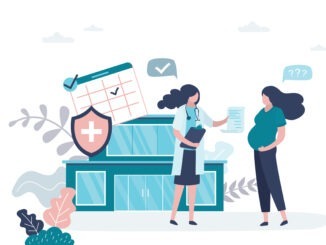
Helen Salisbury, GP, explores the interactions between health, poverty and stigma
CREDIT: This is an edited version of an article that originally appeared on The BMJ
On hot summer days I used to take off my shoes and walk home from primary school barefoot. Occasionally I’d be told off by a stranger, a common remark being, “What would your mother say?” Only years later did I understand that this wasn’t about cleanliness, or the risk of cut feet, but about bringing the shame of poverty on my family by making it look as though we were too poor to have shoes.
This stigma hasn’t gone away, and while I have no difficulty asking a patient whether they’ve had a recent change of sexual partner, money remains a greater taboo. When I listen to people talking about their depression or anxiety there’s sometimes a clear underlying cause, such as a recent bereavement or the stress of looking after a vulnerable relative. Occasionally, when I’ve earned their trust and broached the subject carefully, I’ll hear about coercive control or domestic violence. Only rarely do we touch on the subject of money, although I’m sure that if I had the tools, and the habit of asking, I’d hear more.
Stress about how to pay the bills can be a major contributing factor to poor mental health. If that worry was taken away, how many more of my patients might sleep well at night? Poverty can make us ill in so many ways, and when people who are self-employed or in insecure employment can’t afford appropriate sick leave it’s a significant problem, not only for their own recovery from illness or injury, but also for wider society. If you’re already struggling to heat the house and feed your family, why would you go for a COVID test and risk losing income?
Patients may not want to share these areas of their lives – but they should, at least, have the opportunity. Should I practise asking questions such as, ‘Do you have problems making ends meet before payday?’ or, ‘Can you afford to take sick leave?’ Part of what prevents me is the fear of uncovering problems I can do nothing to help – yet I spend a lot of my time discussing medical and social issues that I can’t solve, so this alone isn’t a good enough reason to keep quiet.
I work in a prosperous part of a city that also has areas of severe deprivation, and my colleagues in less wealthy neighbourhoods are probably much better at asking these questions than I am. Our students learn about the social determinants of health in public health teaching, but we don’t routinely teach them how to ask sensitive questions about a patient’s financial situation in their consultations.
As poverty is so clearly a risk factor for mental and physical ill health, should we perhaps be paying it a bit more attention?


Be the first to comment